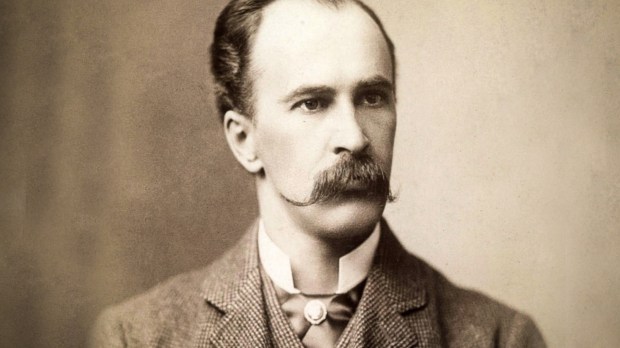If you don’t know who Sir William Osler is, then shame on you.
Okay, maybe that’s a little harsh. But if you are a practicing internal medicine physician (like me) and you aren’t familiar with the “Father of Internal Medicine,” you could easily be accused of a grave secular sin. Because the man was extraordinary.
Born a subject of the British Empire, William Osler’s father was an Anglican missionary priest to the underserved in 19th century Canada. Though his mother prayed that William would be called to ministry, he found himself, instead, enamored with the world revealed through a microscope. Before long, medicine became his chosen path.
Osler trained at the Toronto School of Medicine and McGill University. He performed expert autopsies for standing-room-only crowds while teaching in a practical and approachable manner. Insatiably curious, his prolific research and writing yielded seminal papers on hundreds of subjects including endocarditis, thyroid disease and coal miner’s lung. He would write The Principles and Practice of Medicine, which served as the authoritative word on patient care and remained in publication for more than one hundred years.
The impact of Osler’s knowledge and style have had profound and lasting effects on medical practice to this very day.
But there’s more. William Osler was a decent man. He was a loving husband and a devoted father to his only son, Revere. He maintained a kind and engaged demeanor with his patients. Though constantly overworked, he was extremely generous with his time for relatives, friends and people in need. During smallpox epidemics, he roamed the wards alone to help the “untouchables.” During vacations, he was known to visit and attend to patients in leper colonies.
Passionate, curious, tireless and called, Sir William Osler seemed, truly, to be the greatest of physicians.
Which is why I was dumbstruck by his worst mistake.
During his lifetime, Osler witnessed (and contributed to) a revolution in medicine. Pioneering advancements in anesthesia and surgery, new insights into germ theory and antisepsis and understanding furthered by stethoscopes and autopsies led the hopeful Osler to believe no human challenge was insurmountable. As medical knowledge and technology grew exponentially, so did expectations — both his patients’ and his own. It was on the slope of hope that the greatest physician slipped.
Reflecting on the statues exalting medical men in France, Osler lamented that England and America failed to appreciate the “moral and intellectual inspiration associated with such tributes. ‘France sings one song: “Glory to man in the highest! For man is the master of all things.”’
But then something happened.
Within six years France and Britain were enduring the Great War. The ravages wrought by battle — the carnage inflicted by poison gas, mortar shells and machine guns — were sponsored by science, by technology, by “Man, the master of all things.” Osler would see his only son consumed by the war — killed by man. And he would be crushed by it.
Without question, Sir William Osler was the one of the greatest physicians, and he was a good man. But the greatest physician’s worst mistake was to forget the evil that man can do.
His misdiagnosis was innocent, hopeful and tragically avoidable.
The Catholic Church has taught many things, but among them are three fundamental truths. They are central to the Catholic narrative, readily apparent in our everyday lives and proven correct time and again:
- Man is dignified
- Man is fallen
- Man is redeemable
And the truth that man is fallen is a central and an indisputable part of the narrative.
As American diplomat George Kennan said,
“The fact of the matter is that there is a little bit of the totalitarian buried somewhere, way down deep, in each and every one of us. It is only the cheerful light of confidence and security which keeps this evil genius down.”
As Soviet dissident Aleksandr Solzhenitsyn once noted,
“The line separating good and evil passes not through states, nor between classes, nor between parties either but right through the human heart.”
And Catholic author Sigrid Undset would conclude,
“One cannot accuse Christianity of being unaware of the fact that human wickedness and stupidity are bottomless … [but Christianity also presupposes] a bottomless depth of goodness and wisdom, from which mankind can draw more than they suspect.”
Indeed.
With a clear-eyed sense of our dignified origins, our heavenly destination and our inescapable fallibility, we find ourselves not invincible, not depraved, but humbly and hopefully dependent on our God as we navigate the ways of the world. Or in the words of Pope Benedict XVI, “To have Christian hope means to know about evil and yet to go to meet the future with confidence.”
“God is great/God is good …” goes the childhood prayer.
Sir William Osler was a great and good man but only that. May we learn his story to avoid his mistake.
TodWorneris a husband, father, Catholic convert and practicing internal medicine physician. He blogs for Patheos asA Catholic Thinker.

